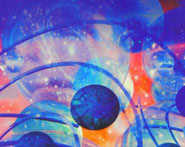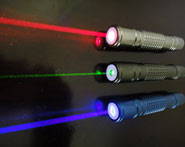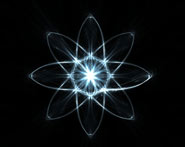


 الفيزياء الكلاسيكية
الفيزياء الكلاسيكية
 الكهربائية والمغناطيسية
الكهربائية والمغناطيسية
 علم البصريات
علم البصريات
 الفيزياء الحديثة
الفيزياء الحديثة
 النظرية النسبية
النظرية النسبية
 الفيزياء النووية
الفيزياء النووية
 فيزياء الحالة الصلبة
فيزياء الحالة الصلبة
 الليزر
الليزر
 علم الفلك
علم الفلك
 المجموعة الشمسية
المجموعة الشمسية
 الطاقة البديلة
الطاقة البديلة
 الفيزياء والعلوم الأخرى
الفيزياء والعلوم الأخرى
 مواضيع عامة في الفيزياء
مواضيع عامة في الفيزياء|
Read More
Date: 10-10-2016
Date: 7-10-2016
Date: 24-11-2016
|
Olbers’ Paradox
While walking through the fields one night with his dog, Jan looked up to see a remarkably clear night sky. In an instant, a famous question flashed in his mind: “Why is the sky dark at night?” With his engineering background, he determined that if the universe is uniformly filled with stars, then their successive spherical shells would contribute equal amounts, and the sky should be ablaze with light from all directions. Yet the night sky remains dark. What is the resolution of this paradox?
Answer
German astronomer Heinrich Olbers (1758–1840) was not the first scientist to ask “Why is the night sky dark?” but his name remains connected to this paradox. The night sky is dark because the time required for the radiation field to reach thermodynamic equilibrium is large compared to all other time scales of interest that is, the lifetime of stars is far too short for the sky to be as bright as the paradox suggests. In addition, if all the matter in the universe were converted to radiation, the equilibrium temperature of the universe would be about 20 K, illustrating that there is insufficient energy to have a bright sky. Edward R. Harrison in the early 1970s determined this solution and also determined that the usual explanation, based on a cosmological redshift of the light from distant sources, was not needed even though its argument would likewise produce a dark night sky.
The critical quantity is the ratio of the average lifetime tave of a star to the time T required for the universe to reach thermodynamic equilibrium. Starting with a uniform density of stars, an observer can appreciate that after a clock time t = tave there will be an expanding sphere of burned-out stars beyond which lies a shell of luminous stars. The radiation from this shell has a maximum radiation density equal to the surface radiation density from the average star times the ratio tave/T as long as the clock time t << T. But tave is at most a little more than 10 billion years, while T can be shown to be tens of billions of years, so the night sky remains dark. Harrison shows that this argument is true for all present models of the universe and does not require a cosmological redshift. He argues that Lord Kelvin (1901) was the first to give the correct answer, which Edgar Allan Poe had anticipated in his qualitative cosmological speculations. For the detailed calculations, see the references below.



|
|
|
|
"عادة ليلية" قد تكون المفتاح للوقاية من الخرف
|
|
|
|
|
|
|
ممتص الصدمات: طريقة عمله وأهميته وأبرز علامات تلفه
|
|
|
|
|
|
|
تسليم.. مجلة أكاديمية رائدة في علوم اللغة العربية وآدابها
|
|
|